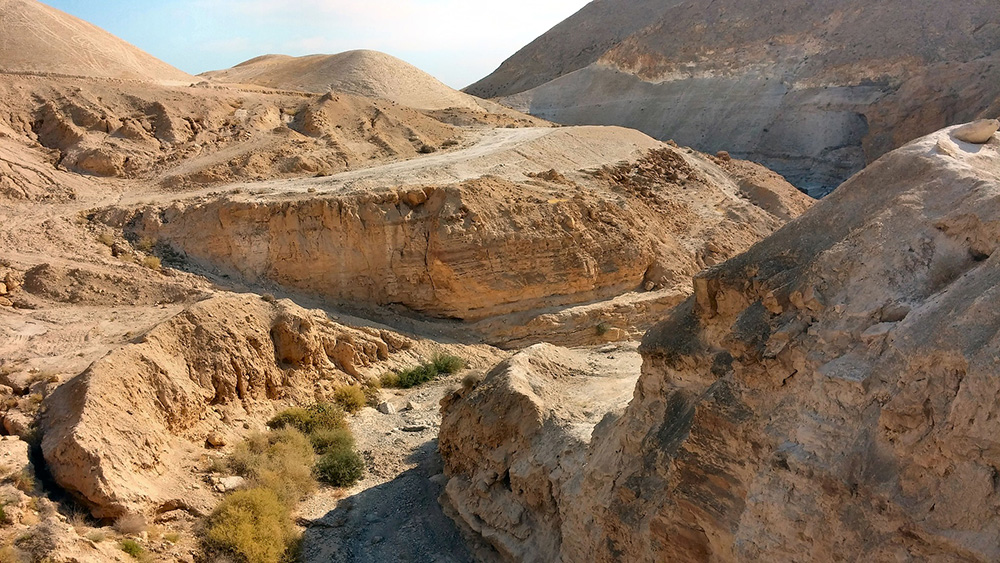
New Orleans Baptist Theological Seminary often hosts pilgrimages to Israel. I’ve been blessed to go to Israel and see the land of the Bible for myself on two occasions.
Many people asked me when I got back, “How was the trip?” or “What did you see?”
The truth is these questions are difficult to answer. On the NOBTS trip, we saw anywhere from four to six sites a day, some of which are related to dozens of stories in the Bible. The trips are busy, overwhelming, a blessing, and many other things that I cannot adequately express.
One impact of the two trips that I appreciate the most is the how seeing the places for myself has aided in my interpretation of the biblical text. I always had a picture in my mind when I read the Bible (who doesn’t), but now I feel as if my picture is a more adequate representation of the reality.
I've outlined a couple simple ways of how going to Israel changed my biblical interpretation.
First, what does it mean to say that Jesus went out to the “wilderness” to be tempted (Matt. 4:1)?
I grew up in Pontotoc, Mississippi. It’s a small town in Northeast Mississippi, and in many ways, I still think of it as home. When I think of a “wilderness,” I think of pine trees or maybe the old movies about Grizzly Adams. (I just dated myself didn’t I?) I did not think of this of sand and rocks.
In fact, I can remember when I first started learning Greek, it struck me as odd that the same word could mean “desert” or “wilderness.” (Check the NIV on the verse above and you’ll see they use the term “desert” instead of “wilderness.”)
The reality is I had an imaginary picture from my culture and context that is not what the readers of the text would have seen or what the author intended. The “wilderness” mentioned in Matt. 4:1 and other texts like it looked much more like the picture above than the picture in my mind. You can certainly see how God would need to provide manna for the host of Israelites during the exodus journey.
If I had taken the time to think about it, this type of setting makes more sense. The woods I know about have lots of wildlife to hunt and streams to fish, but the biblical texts talk more about rocks and the difficulty of finding water or meat in the “desert/wilderness.”
Does this impact my theology of God or some other crucial doctrine? No, but it does help me read the Bible more like the original audience which is a helpful goal.
My travel to Israel also impacted my understanding of the importance of water to the land of the Bible. I’m not talking about in today’s world (although you should hydrate well in Israel to avoid dehydration). I’m talking about during the biblical times.
As we traveled through the Negev, or southern part of Israel, one of the common aspects of any site was the waterworks. Most sites were either built near water or contained cisterns in addition to wells. People went to great trouble to dig wells, and rulers would go to great trouble to protect their water supply from incoming raiders.
The reason for this focus on water is quite simple. It doesn’t rain very often in southern Israel. After all, much of the southern part of Israel is desert terrain. None of this was a great revelation to me. After all, I remember the stories of the patriarchs Abraham and Isaac digging wells. Jacob met his wife at a well, and 2 Kings 2:20 mentions Hezekiah’s water tunnel. NOBTS has even been involved in excavating water works in Gezer.
However, being there in Israel, it struck me how much effort was involved in obtaining water.
No matter how often I read about their need for wells, I cannot relate because all I have to do is turn the faucet. Let me give one example here that our guide mentioned to me. In the description of heaven in Rev 22:1-2a, John wrote, “Then he showed me the river of living water, sparkling like crystal, flowing from the throne of God and of the Lamb down the middle of the broad street of the city.” I have, of course, read that verse before, but I think I would have been more comforted in John’s day to hear this aspect of heaven than I often am today.
Now as I read through my Bible after my trip to Israel, there are many places where I “see” things better than I did before.
I certainly encourage all who can to take the trip for themselves.
Norris Grubbs is the Provost at NOBTS and is a research fellow at the Research Institute of the ERLC.